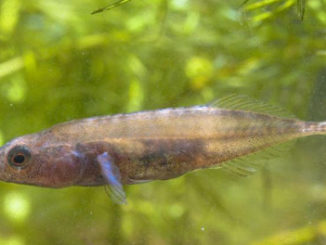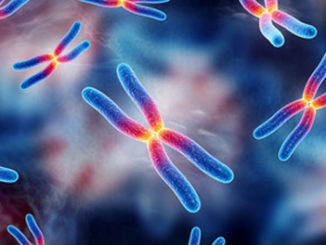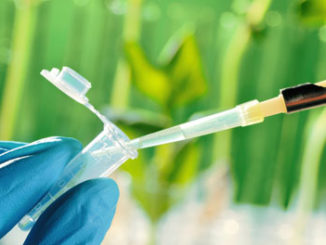Epigenetic inheritance, especially transgenerational epigenetic inheritance, is an important topic in epigenetic research. Do we pass down epigenetic marks to our children as a result of our lifestyle or behavior? Can this occur even long before conception and during pregnancy? Epigenetic studies suggest that the actions of a future mother or father can have long-lasting health effects on their children for years to come.
Studies show that certain DNA methylation marks can survive genome-wide reprogramming and be inherited. For example, a father’s exposure to phthalates could adjust epigenetic marks on sperm DNA and impact a couples’ ability to have children. A father’s diet and supplement intake could also influence his child’s mental fitness.
Mothers can influence epigenetic marks on their offspring’s DNA as well, changing how their baby will react to stress, whether or not they grow up healthy, and their ability to learn, remember and adapt as adults. The Mediterranean diet during pregnancy was shown to epigenetically reduce a child’s risk of disease.
Explore the ways in which lifestyle and habits of a mother and father – and potentially even grandparents or great-grandparents – may influence the epigenetic marks and health of later generations via epigenetic inheritance.
Check out our comprehensive e-book Epigenetics in Life: What We Eat to learn more about how different foods influence health.
Along with Father’s Day comes the typical thank-yous, the gratitude that never quite seems to be enough for the love Dad has shown for all the years. Maybe your father encouraged you through difficult times or supported you when you needed it most. These are wonderful things to thank your dad for, but there might be something you’ve been missing all along. Have you ever thought of thanking him for being an epigenetic hero? Your dad’s behavior and experiences may [more…]
The Quebec Ice Storm of 1998 was a devastating time that plunged more than 3 million Quebecers into frigid darkness without electricity for as long as 45 days. Now, more than 15 years later, researchers from McGill University and the Douglas Mental Health University are finding out that the length of time a pregnant woman went without electricity during this time predicts her child’s epigenetic profile. Scientists have discovered a unique DNA ‘signature’ of children who were in the womb [more…]
We have previously seen how a mother’s environment or her behaviors might epigenetically affect her offspring. Now we have results that hint at the epigenetic effect fathers may pass on through generations. In a previous article we explored the heritability of alcoholism and how dad’s drinking could epigenetically affect a son’s preference for alcohol. In a new study conducted at the University of Illinois at Urbana-Champaign, researchers found that stickleback fish fathers may potentially alter their young epigenetically through increased [more…]
New research has been suggesting that parents can transmit changes to their gene expression to their children. The heritable changes occur as a result of environmental stresses and are known as epigenetic modifications. A previous article covered the epigenetic transfer of nutrition “memory” across several generations. Now, a recent study by researchers from the University of California in Santa Cruz, demonstrates the transferring of epigenetic memory across generations as well as from one cell to another during early development. The [more…]
New evidence supports the epigenetic mechanism by which acquired traits may be inherited. The research found that cells silence genes by recognizing chemical tags or marks that are passed down through the generations rather than using information from the hardwired DNA sequences. The chemical tags on the DNA act as a molecular memory which is used by cells to recognize and then silence certain genes in successive generations. The research, conducted by scientists at Indiana University, illustrates how plant cells [more…]
A child is at an increased risk for developing type 2 diabetes and obesity if his or her mother was undernourished during pregnancy. This risk is caused in part by epigenetic changes thought to persist through generations, but it’s uncertain at which generation these changes stop affecting offspring. Researchers at University of Cambridge give us insight into the temporality of this epigenetic “memory” of nutrition using a mouse model and demonstrate its persistence in mice sperm. In a study published [more…]
The way a baby is delivered may epigenetically impact stem cells of the infant, according to a new study at Karolinska Institutet. Their findings could help scientists understand the differences between various modes of delivery, for example, why babies delivered via cesarean section are statistically more susceptible to immunological diseases. It’s still uncertain whether this epigenetic mechanism is long-term or temporary. Women are now more than ever electing to give birth by cesarean section, the most popular surgical procedure in [more…]
According to a new study from University of Pittsburgh School of Medicine, a father’s excessive drinking behavior could set up his son for , even before conception. Results published in PLOS ONE demonstrate that mice show more sensitivity to alcohol’s effects and are less likely to drink it if their fathers were chronically exposed to the substance before mating. This recent animal study adds to the evidence linking heredity and the propensity for alcohol abuse. Previous studies support the inheritance of [more…]
We all know the deal by now: On Mother’s Day we should show appreciation for the years our moms spent raising us, for the years she worked patiently to bestow on us the skills we didn’t even know (or maybe refused to believe) we needed to succeed in life. A lot of the things she did for us are easy to give thanks for because we’ve experienced them first-hand throughout our childhood: reassuring words of wisdom, hot meals on the [more…]
A multitude of studies support that the quality of a child’s environment in the womb significantly influences health and development over his or her lifetime. Scientists at the University of Southampton, UK and National University of Singapore have analyzed epigenetic marks on DNA in order to determine how much a baby’s development in the womb is dictated by his or her genotype compared to the mother’s mental and physical health. In the study published in Genome Research, scientists used samples [more…]











